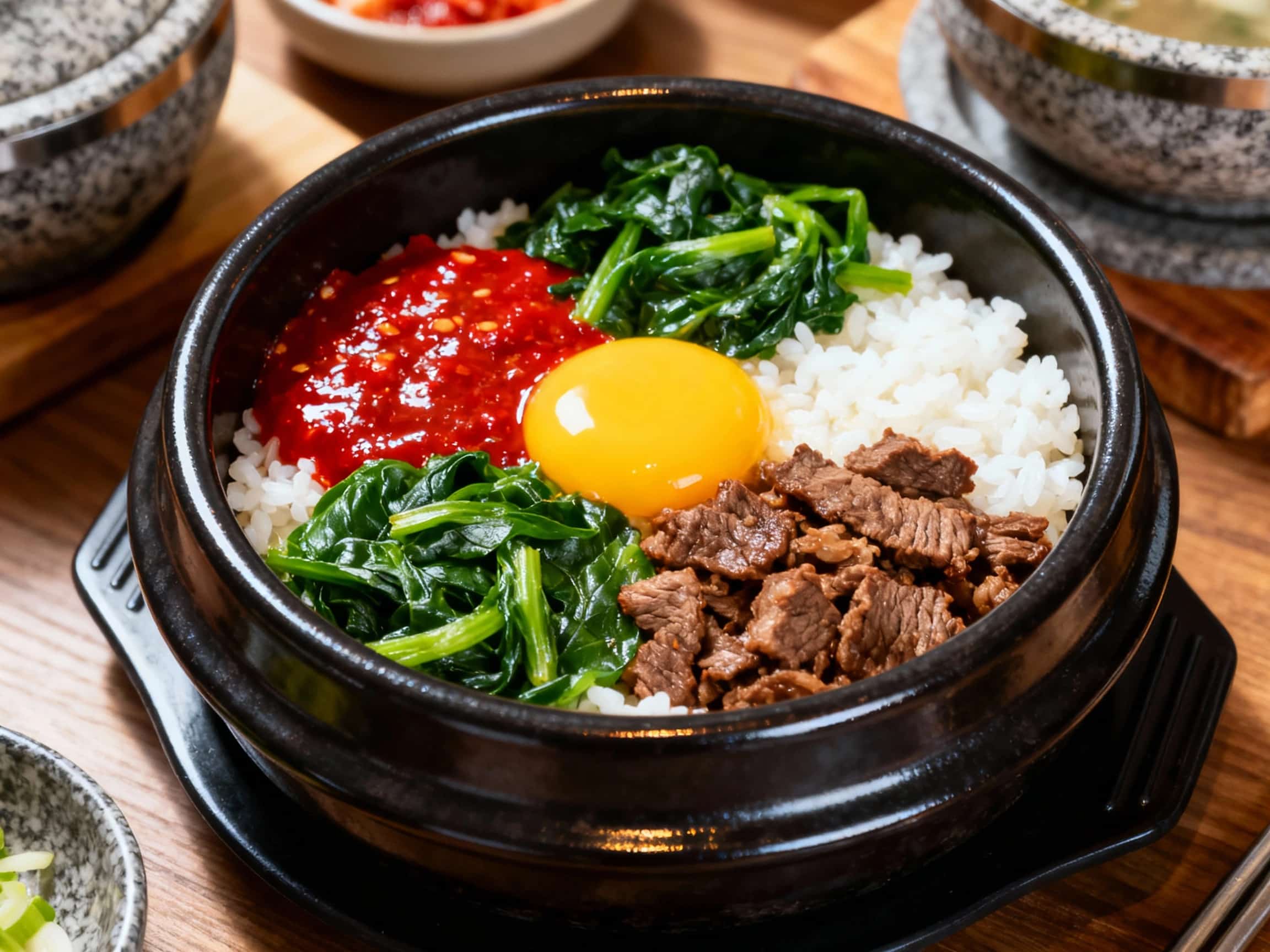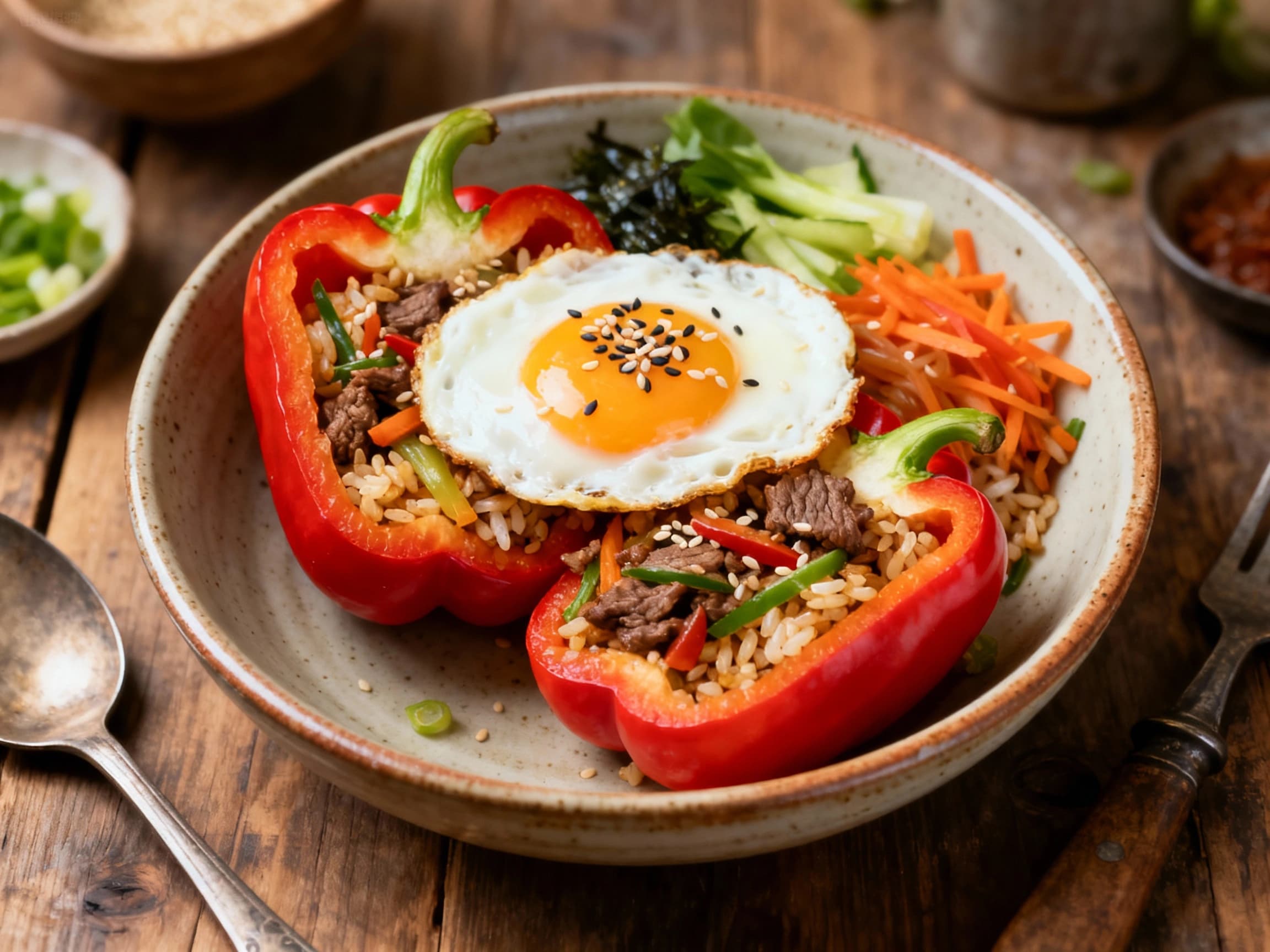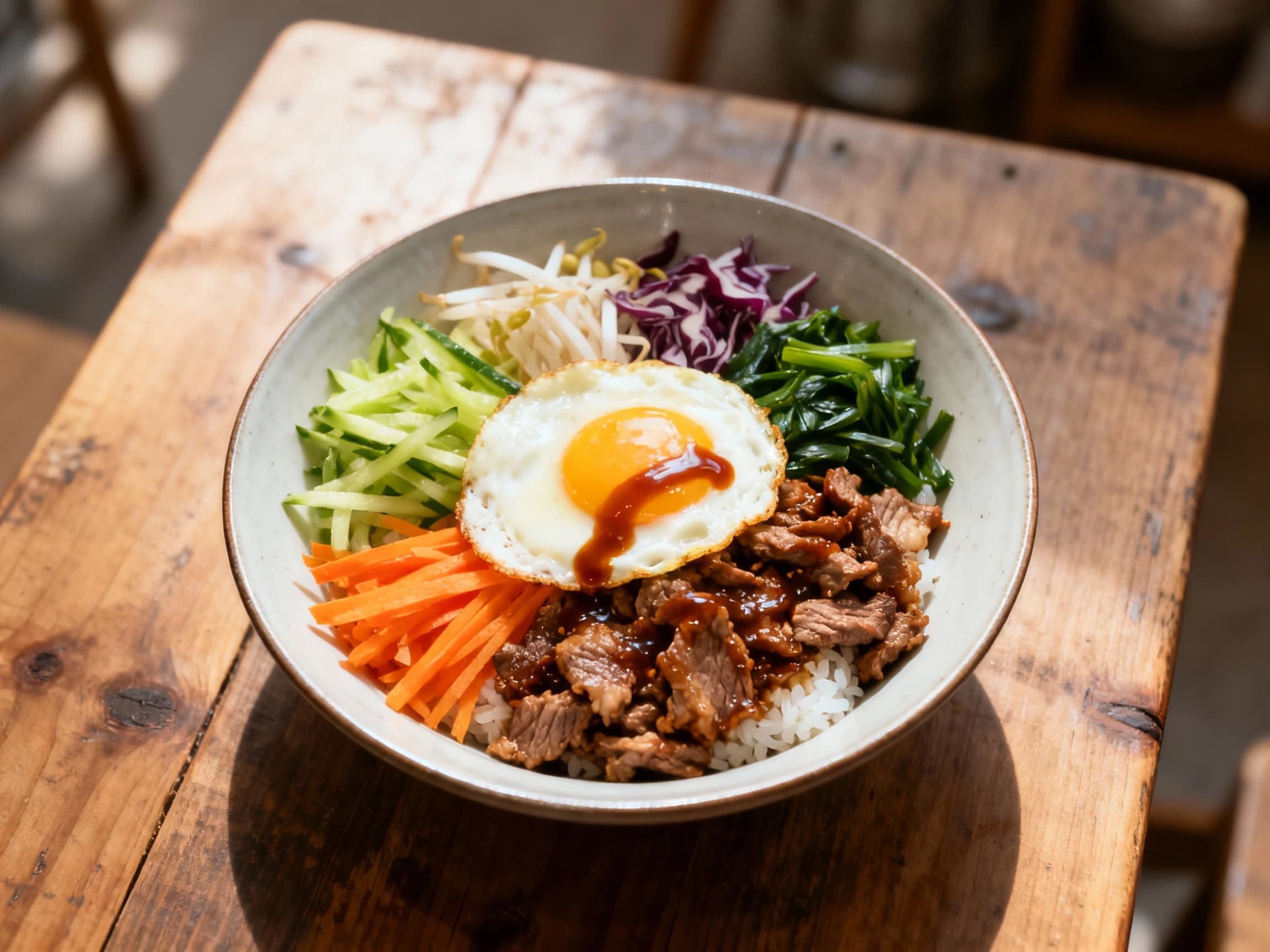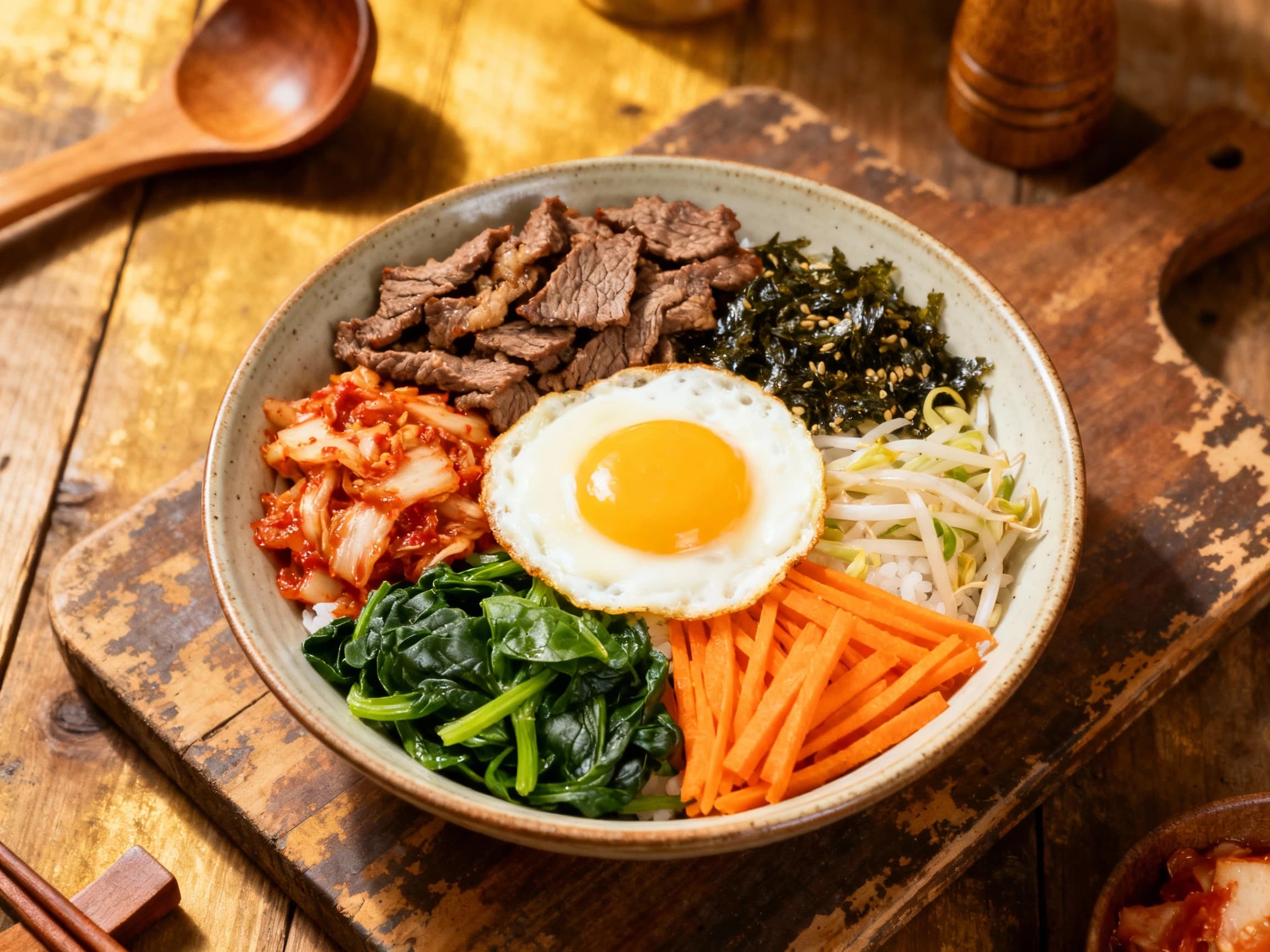
Bibimbap
비빔밥
- Country
- Korea
- Region
- Not specified
- Recipes
- 3 Recipes
Origins & Characteristics of Bibimbap
Bibimbap, meaning "mixed rice," is a vibrant and nutritious Korean dish that beautifully encapsulates the country's culinary philosophy of balance and harmony. While the exact origins are debated, historical records suggest its precursors date back to the Joseon Dynasty (1392–1897). Some theories propose it originated from the practice of mixing leftovers after ancestral rites (jesa) or as a simple, complete meal for farmers during busy seasons. Another theory points to 'goldongban,' a royal court dish from the 19th century, which closely resembles modern bibimbap. Over time, it evolved from various regional interpretations into the widely beloved dish it is today, typically served in a Dolsot (hot stone pot) or a traditional bowl. Bibimbap holds significant cultural weight, representing not just a meal but a culinary art form where each ingredient—colorful vegetables (namul), meat, and a fried egg—contributes to both flavor and visual appeal. The act of mixing the ingredients before eating symbolizes unity and the harmonious blend of different elements into one complete experience. Famous culinary figures and institutions, such as Jeonju Bibimbap, a regionally specific variant known for its elaborate preparation, have helped elevate its status. It is a dish that has successfully transitioned from a humble peasant meal to a global culinary icon, recognized for its health benefits and customizable nature, appealing to a wide array of palates.
History of Bibimbap
The dish 'Goldongban', a precursor to modern Bibimbap, is documented in royal court cookbooks during the Joseon Dynasty.
References to 'Bibimbap' itself start appearing in Korean culinary texts.
Bibimbap gains popularity as a convenient and wholesome meal in post-war Korea.
Jeonju Bibimbap, known for its distinct preparation, becomes a nationally recognized specialty.
Bibimbap begins to be introduced to international audiences through Korean restaurants abroad.
Bibimbap featured in major international food festivals and cultural events, solidifying its global appeal.


